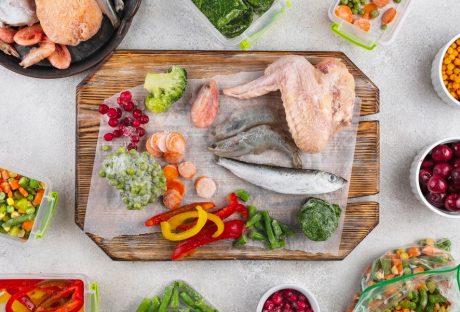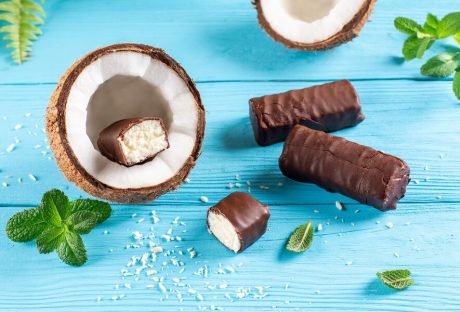Fad diets are always trying to do something new, promising to improve your health the way no diet ever has before. Often, if these diets aren’t just trying to sell you something, their principles are based on ‘bro science’ or common nutrition myths.
The truth is that we don’t need to reinvent the wheel. Many cultures around the world have been eating well for millennia, striking the right balance between all the necessary components of a good diet.
Today, we’re looking at China’s approach to food, which has captured the attention of both food enthusiasts and health experts globally. And with nearly half of Americans actively trying to lose weight, according to this study by ValuePenguin, the timing couldn’t be better. Let’s delve into why the Chinese diet is celebrated as one of the healthiest in the world.
A Balanced Approach
At the heart of the Chinese diet lies a profound emphasis on equilibrium. In Traditional Chinese Medicine (TCM), the belief in harmonizing the body’s yin and yang energies is at the core of well-being. This holistic philosophy extends gracefully to the realm of cuisine, where achieving balance in one’s diet is regarded as a bedrock principle.
Chinese culinary traditions beautifully exemplify this equilibrium, artfully integrating a spectrum of tastes, textures, and culinary techniques. The result is a culinary experience that engages all five essential flavors – sweet, sour, bitter, salty, and umami.
Staples of the Chinese Diet
Every good meal needs a healthy foundation, and this is something the Chinese have been nailing forever. Rice or wheat is usually the most common base of nutritious meals. Furthermore, these grains provide a steady source of carbohydrates, ensuring sustained energy throughout the day. Unlike processed and refined grains, Chinese cuisine favors whole grains, preserving essential nutrients and fiber.
In addition to grains, vegetables play a central role in Chinese cooking. A variety of leafy greens, cruciferous vegetables, and seasonal produce brighten up Chinese dinner tables, offering a wealth of vitamins and minerals. These vegetables are often gently cooked or stir-fried, preserving their nutritional value. The inclusion of vegetables also ensures a high fiber content in the diet, supporting digestive health and promoting a sense of fullness.
Fish, poultry, tofu, and legumes are common in Chinese cuisine, with these protein options often being preferred over red meat. Fish, in particular, provides valuable omega-3 fatty acids, renowned for their heart-protective properties. This combination of protein and veggies has helped China claim the top spot in this Compare the Market study of the world’s healthiest diets.

Embracing Seasonal and Local Ingredients
The Chinese diet’s healthiness shines through its emphasis on using locally sourced, seasonal ingredients, aligning with traditional beliefs of harmony with nature. Seasonal foods offer peak flavor and nutrition while reducing the need for preservatives and long transportation.
Furthermore, the Chinese diet integrates traditional wisdom into its culinary practices. Traditional Chinese Medicine (TCM) introduces the idea of food as medicine, with specific ingredients chosen for their restorative and strengthening effects.
For instance, ginger helps to combat colds and enhance digestion. On the other hand, goji berries have the power to boost the immune system. This blend of ancient knowledge with food choices contributes to the diet’s reputation as one of the healthiest globally.
Portion Control and Mindful Eating
In addition to the quality and variety of foods, portion control and mindful eating practices are integral to the Chinese diet. Usually, meals are nothing less than family-style, with multiple dishes in the center of the table. This communal dining style encourages moderation and mindful consumption. By serving food in smaller portions and sharing, it becomes easier to control calorie intake and prevent overeating.
Furthermore, the Chinese approach to eating is full of mindfulness. Eating slowly, savoring each bite, and paying attention to the flavors and textures of food are common practices. This not only enhances the dining experience but also allows the body to register satiety more accurately.
Mindful eating promotes a deeper connection between the mind and body, reducing the risk of overindulgence and promoting overall well-being. If you’d like to try it yourself, Headspace has this free useful guide you can read.
The Changing Approach Towards Chinese Diet
The Chinese have a reputation for consuming a lower aggregate diet, which eventually impacts their later development. People belonging to some of the rural civilizations think it might be unfair to ask people to give up on meat completely. In countries like Brazil and China, the consumption of meat is a sign of economic as well as social progress.
There is an increasing demand for vegan food as well. A maximum of the total population wants to switch to a healthier alternative, keeping health concerns in mind. This has continued to have a positive impact on both their physical and mental well-being. Fat-free beverages, green vegetables, and more fruits and beans are now included in a traditional Chinese diet.
As a result, there is an increase in the number of healthy babies produced every year. Individuals tend to have better immunizations against diseases, and they typically live longer. Health experts say while this might not be the result of health consumption solely, food certainly has an enhanced effect on overall well-being.
Wrap-Up
The Chinese diet, with its emphasis on balance, staple foods, seasonal and local ingredients, and mindful eating, serves as a model for optimal health. Its diverse array of flavors, ingredients, and deep-rooted wisdom makes it a blueprint for healthy eating practices.
By embracing the principles of the Chinese diet, from moderation to variety, and the incorporation of fresh, individuals worldwide can take strides toward improving their health. Unprocessed ingredients are the key to remaining healthy and strong.
While no single diet is a magic solution, the Chinese approach to food offers valuable insights into maintaining a nutritious and balanced lifestyle that contributes to longevity and vitality. If you are diet-conscious, ensure to integrate the aforementioned tips to make your lifestyle better and healthier. Thank you for reading!
Read Also:
- The Diet To Follow For A Healthy Gut
- Why A Pescatarian Diet Is Beneficial
- Why have a diet chart for weight loss?























